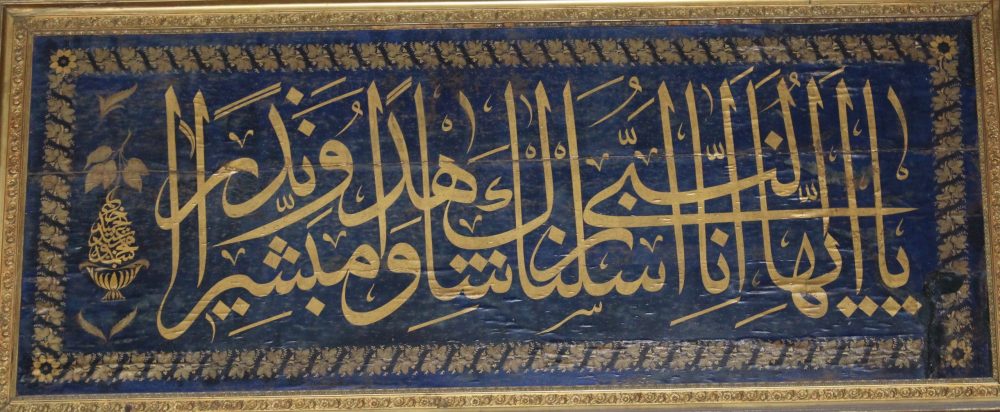Sporting a thick beard, a black turban, and a knee-length kurta (tunic), Mubin Shaikh looks very much like a dusty pilgrim fresh off a bus from the Northwest Frontier Province of Pakistan. His perfect Canadian accent and love of hockey reveals a different story. Mubin is a devout Canadian-born Muslim with immigrant Indian parents.
In mid-July, with his face splashed on every television screen and on every newspaper across Canada, he became an instant cause célèbre and the focus of a heated debate in Canada’s Muslim community. It is a debate that will likely have far-reaching implications for Muslims living in the West.
Two years ago, Mubin approached the Canadian Security and Intelligence Services (CSIS) and offered to assist them in an ongoing investigation. CSIS didn’t need his help with that case but was interested in recruiting the 30-year-old to work on another investigation. Two years later, on June 2, in part with his paid assistance, 17 young Muslim men were arrested in Toronto on terrorism-related charges. The charges against them will evidently run the course of a lengthy trial that will most certainly hang on a defense that the charges were a result of entrapment.
Why did Mubin decide to become a spy for Canadian intelligence?
He believed that given his knowledge of the Muslim community, he was best suited to distinguish between Muslims who were most likely to carry out a terrorist act from those who often talk tough on the minbar (pulpit) only to crawl home to the warmth of their down pillows and fluffy comforters.
It didn’t come as much of a surprise when thousands of Canadians praised Mubin for his bravery, patriotism, and commitment to Canadian values. His story came out days after the ugly train bombings in Mumbai and Canadians said they felt relieved knowing that there were men like Mubin in Canada. Some said that by telling his story, he proved that Canada’s Muslims are prepared to go beyond hollow condemnations of terrorism.
The response to Mubin in the Canadian Muslim community was nasty. Second- and third-generation Muslims used their blog space to dub him a traitor, a murtad (apostate), a munafiq (hypocrite), and a kafir (disbeliever). Their hatred for Mubin stems from several mistaken assumptions.
Some have suggested that it is wrong for Mubin to make his Muslim brothers the target of his espionage. By doing so and then “outing” himself, his punishment must be death. Short of that, he must be declared a kafir, murtad, etc.
What if he had spied on people who are not Muslims? Is one to assume that Muslims could do no wrong? And if his punishment is death, does that mean Canada has been declared Dar Al-Harb (a non-Muslim country)? On the authority of which Imam? Or is it because Canadian troops are in Afghanistan fighting the Taliban? Hamid Karzai, the democratically elected president of that country, has welcomed them.
It has been suggested that Muslims are oppressed by the West and are victims of occupation and colonization at a global level. Canada is a member of the G-8 and, thus, by engaging in espionage against Muslims in Canada, Mubin is working for the enemy. While this argument will garner support among people with a penchant for grand conspiracy theories, it has no merit in the Islamic legal tradition. Not today. Suffice it to say that those who hold this view are never likely to invite Mubin to their weekly biryani dinners.
The challenge for Muslims living as minorities in the West is to develop a clear exposition of the Islamic legal parameters as it pertains to them. Those who teach fiqh (Islamic jurisprudence) for Muslim minorities must now move beyond issues of how to keep your wudu in a non-Muslim country. They must address issues that will seek to clarify the relationship between the community of believers and the secular nation state.
This is the time to enrich the many stirring ideas proposed by the brilliant master of the Islamic legal tradition, a faqih extraordinaire, Shaykh Abdallah bin Bayyah. For anyone interested in this topic, I strongly recommend his “Sacred Law in Secular Lands.”
In the absence of clear legal rulings on any given matter, the default position of a believer’s actions should be guided by the primary purpose (maqasid) of the Shari’ah — the protection and the safe-guarding of human life, any human life. Thus, if the intent of Mubin’s action was an attempt to keep the public peace and to save human life, he should be praised not cursed.
When all their arguments fall apart, those who damn Mubin to the dark pit of hell ask, “Why didn’t he try to convince the young men that what they were allegedly planning to do was evil?” His response, “I tried, they didn’t listen.”
Published in Islamica Magazine

